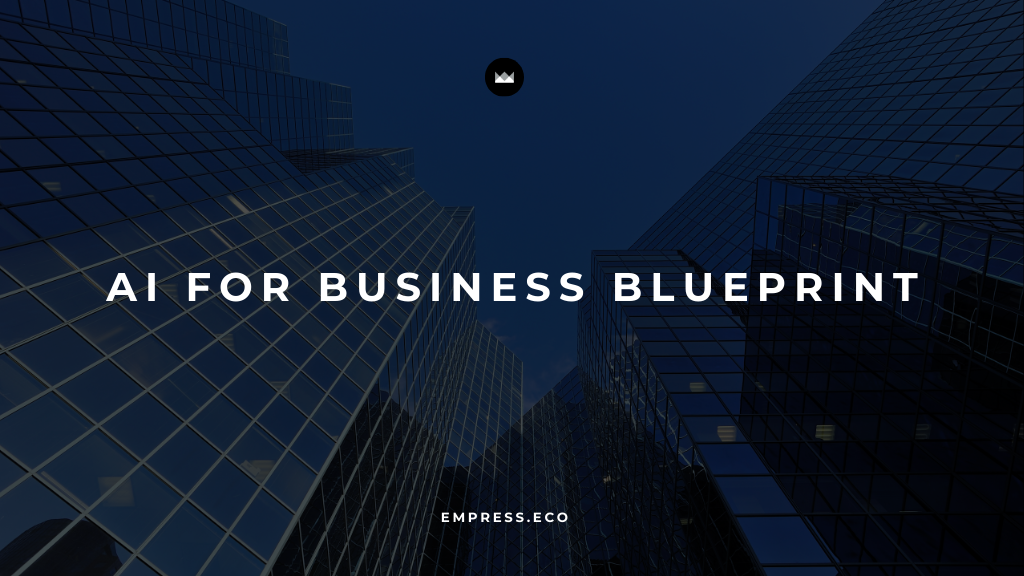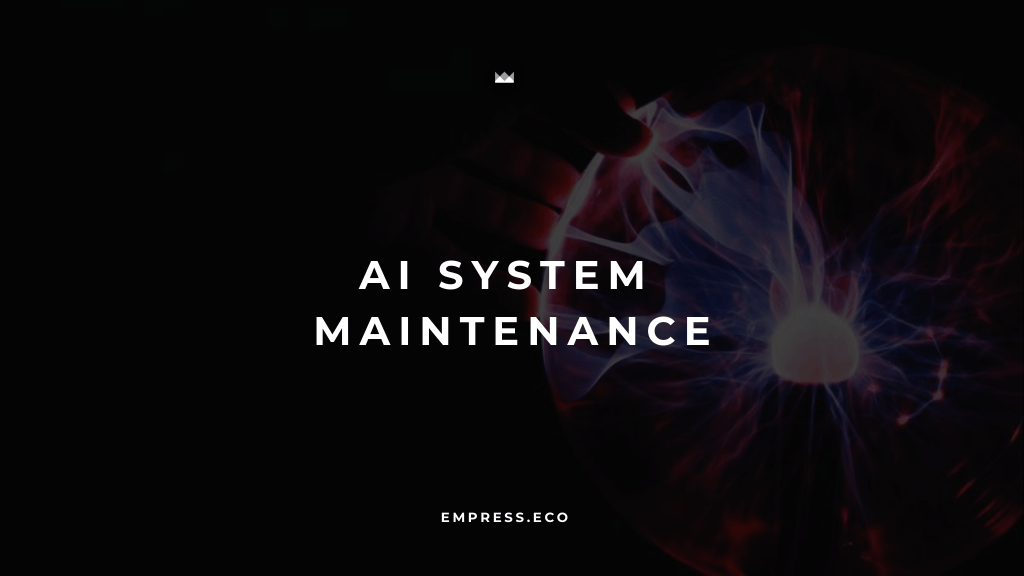Artificial intelligence (AI) and automation are no longer futuristic concepts; they’re integral parts of today’s business landscape. Companies across various industries are adopting these technologies to streamline operations, enhance decision-making, and drive innovation. However, the true value of AI and automation isn’t unlocked by merely implementing these technologies—it’s achieved by aligning them with your business’s core objectives. That’s where AI and automation consulting come into play.
The Importance of AI and Automation Consulting
Imagine you’re at the helm of a growing business. You’ve heard about the transformative potential of AI, and you’re eager to harness its power. But where do you start? How do you ensure that the technology you invest in will actually move the needle for your business? This is where AI and automation consulting become invaluable. Consultants don’t just help you adopt the latest tech—they work with you to ensure that every AI initiative is strategically aligned with your broader business goals.
AI and automation consulting is about more than just tech; it’s about understanding your business, identifying areas where AI can add real value, and developing a roadmap that takes you from where you are now to where you want to be. Let’s break down how this process works and why it’s crucial for your business’s success.
The Benefits of Strategic AI and Automation Consulting
Before diving into the “how,” it’s important to understand the “why.” Why should businesses consider AI and automation consulting? What tangible benefits can it bring? Here are some of the most significant advantages:
1. Strategic Alignment with Business Goals
The first and perhaps most important benefit of AI and automation consulting is strategic alignment. Without a clear strategy, AI initiatives can become costly experiments that fail to deliver meaningful results. Consulting ensures that every step you take with AI is purposeful and aimed at achieving specific business outcomes.
For example, if your business goal is to improve customer satisfaction, AI consultants might recommend implementing AI-driven customer support systems that can handle inquiries 24/7, provide personalized responses, and learn from each interaction to continually improve. This approach ensures that AI investments are not just technologically impressive, but also aligned with the company’s mission to enhance customer service.
2. Boosting Efficiency and Productivity
Another significant benefit of AI and automation is the boost in efficiency and productivity that these technologies can provide. By automating routine tasks, businesses can free up human resources to focus on more strategic, creative, and high-value activities.
Consider a scenario where a company’s HR department spends hours every week manually sorting through job applications. AI can automate this process by quickly scanning resumes, filtering out candidates that don’t meet basic criteria, and even scheduling interviews. This not only saves time but also reduces human error and bias, leading to better hiring decisions.
Consultants help businesses identify which processes can be automated for maximum efficiency gains. They guide the implementation of AI solutions that fit seamlessly into existing workflows, ensuring that the transition to automation is smooth and beneficial.
3. Enhanced Decision-Making Capabilities
AI’s ability to analyze vast amounts of data and extract actionable insights is one of its most powerful features. This capability significantly enhances decision-making within businesses by providing leaders with the information they need to make more informed, timely, and strategic decisions.
For instance, AI can analyze sales data to identify trends and patterns that might not be immediately obvious to the human eye. This can help businesses forecast demand more accurately, optimize inventory levels, and even identify new market opportunities.
AI consultants help integrate these advanced analytics tools into a company’s decision-making processes. They ensure that the data insights provided by AI are actionable and aligned with the company’s strategic goals, leading to smarter, more data-driven decisions.
4. Driving Innovation and Maintaining a Competitive Edge
AI and automation are not just about efficiency—they’re also about innovation. These technologies enable businesses to explore new business models, offer new services, and stay ahead of industry trends. For example, AI can power personalized marketing campaigns that are tailored to individual customer preferences, increasing engagement and conversion rates.
Consultants help businesses identify where AI can drive innovation, whether it’s through developing new products, entering new markets, or enhancing the customer experience. By staying ahead of technological trends, businesses can maintain a competitive edge and continue to grow in an ever-changing market.
How to Implement AI and Automation Strategies Effectively
Now that we’ve explored the benefits, let’s dive into the practical steps of implementing AI and automation strategies that align with your business goals. Here’s how you can approach this process:
1. Assess Your Current Capabilities
The first step in developing an AI strategy is understanding where you currently stand. Conduct a thorough assessment of your existing processes, technologies, and capabilities. This will help you identify areas where AI and automation can add the most value.
For example, if your customer service team is overwhelmed by the volume of inquiries, an AI-powered chatbot might be the solution. Or, if your sales team is struggling to manage leads effectively, AI could help by automating lead scoring and nurturing.
Consultants can guide you through this assessment, helping you understand your current strengths and weaknesses, and identifying the best opportunities for AI and automation.
2. Define Clear and Measurable Objectives
It’s not enough to simply say, “We want to implement AI.” You need to have clear, measurable objectives that align with your business goals. What do you want to achieve with AI? Is it faster customer response times? Reduced operational costs? Increased sales?
Let’s say your objective is to reduce customer churn. AI can help by analyzing customer behavior patterns to identify those most likely to leave, allowing you to intervene with targeted retention strategies before it’s too late. By setting clear objectives like this, you can ensure that your AI initiatives are focused and results-driven.
3. Develop a Detailed Roadmap
Once you’ve defined your objectives, the next step is to develop a detailed roadmap for implementation. This isn’t just about setting deadlines—it’s about understanding the sequence of actions needed to implement AI effectively.
Your roadmap should include key milestones, resource allocation, and a clear plan for integrating AI into your existing systems. For example, if you’re automating your supply chain management, your roadmap might start with data collection and integration, followed by the implementation of AI algorithms to predict demand, and finally, the training of staff to manage and optimize these new tools.
A well-thought-out roadmap ensures that your AI initiatives are executed smoothly and efficiently, with minimal disruption to your existing operations.
4. Foster a Culture of Innovation
Technology alone isn’t enough—your team needs to embrace it. Fostering a culture of innovation within your organization is crucial for the successful adoption of AI and automation. This means encouraging your employees to experiment, take risks, and think creatively about how AI can enhance their work.
For example, you could set up innovation labs where teams can prototype AI solutions, or offer training programs that help employees understand the potential of AI in their specific roles. By creating an environment where innovation is encouraged, you can ensure that your AI initiatives are not only adopted but embraced.
5. Monitor, Evaluate, and Adjust
The implementation of AI and automation is not a one-and-done process. It requires continuous monitoring, evaluation, and adjustment to ensure it remains aligned with your business goals.
Regularly review the performance of your AI initiatives against your original objectives. Are you meeting your goals? What’s working well, and what needs to be adjusted? For example, if your AI-driven marketing campaigns aren’t delivering the expected ROI, you may need to tweak your targeting algorithms or adjust your customer segmentation strategy.
Consultants play a key role in this process, helping you monitor the performance of your AI initiatives and make data-driven adjustments as needed.
Overcoming Challenges in AI and Automation
While AI and automation offer tremendous potential, they also come with challenges. Here’s how to navigate some of the most common hurdles:
1. Integration Complexity
Integrating AI into your existing systems can be complex, especially if those systems are outdated or not designed to work with AI. To overcome this, work with consultants who can help you plan the integration carefully and ensure that your AI solutions are compatible with your current infrastructure.
For example, if you’re implementing AI-driven customer service solutions, consultants can help you integrate these tools with your existing CRM system, ensuring a seamless flow of information and enhancing the overall customer experience.
2. Data Privacy and Security
With great data comes great responsibility. As you implement AI, you’ll be collecting and processing more data than ever before, which means you need to have robust data privacy and security measures in place. This includes complying with regulations like GDPR and implementing advanced encryption and data protection protocols.
Consultants can guide you in setting up the necessary safeguards to protect sensitive information and ensure that your AI initiatives comply with all relevant laws and regulations.
3. Change Management
Implementing AI often requires significant changes to your processes and workflows, which can lead to resistance from employees. Effective change management is essential to overcome this. This involves clear communication about the benefits of AI, providing training and support, and involving employees in the decision-making process.
By managing change effectively, you can ensure a smoother transition to AI-powered operations and reduce the risk of disruption or resistance.
Conclusion: The Future is AI-Driven
AI and automation are not just the future—they’re the present. But to truly benefit from these technologies, businesses need to approach them strategically. AI and automation consulting can help ensure that your investments in these technologies are aligned with your business goals, leading to greater efficiency, innovation, and competitive advantage.
By understanding your current capabilities, setting clear objectives, developing a detailed roadmap, fostering a culture of innovation, and continuously monitoring and adjusting your strategies, you can harness the full power of AI and automation to propel your business forward.
So, are you ready to take the next step? With the right strategy and support, AI can do more than just streamline your operations—it can transform your entire business, driving growth and innovation for years to come. The time to act is now. Are you prepared to lead your industry into the future with AI and automation? If so, the possibilities are endless.



